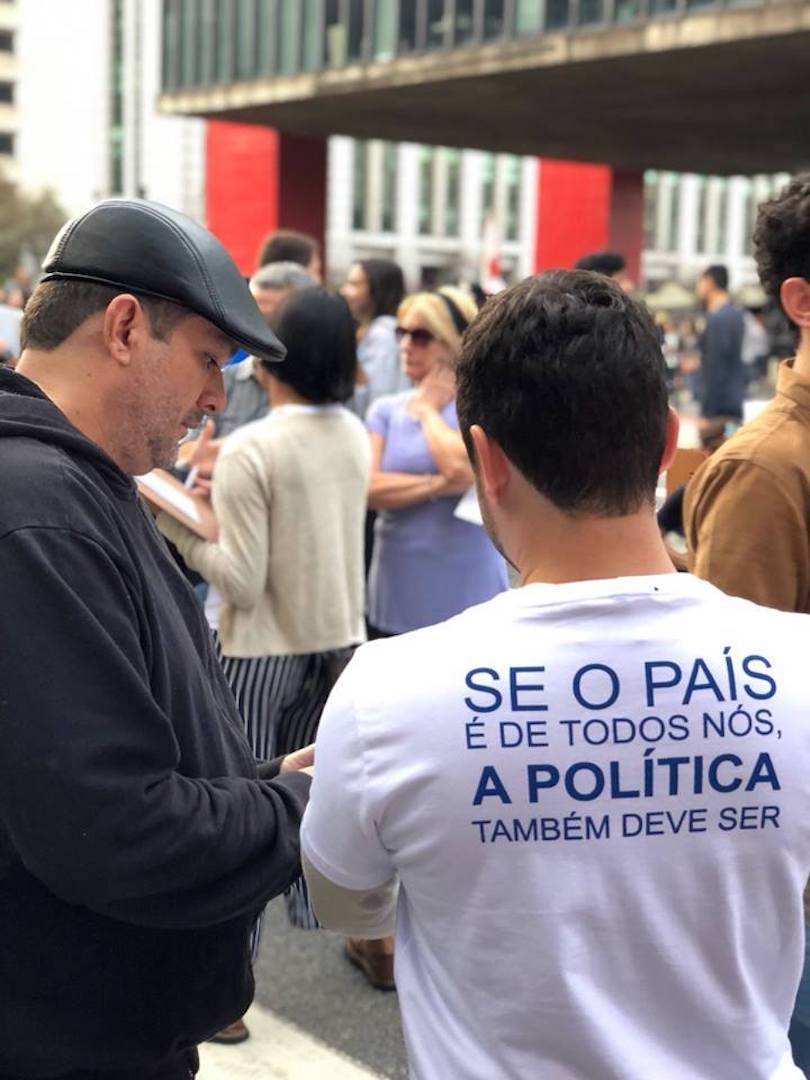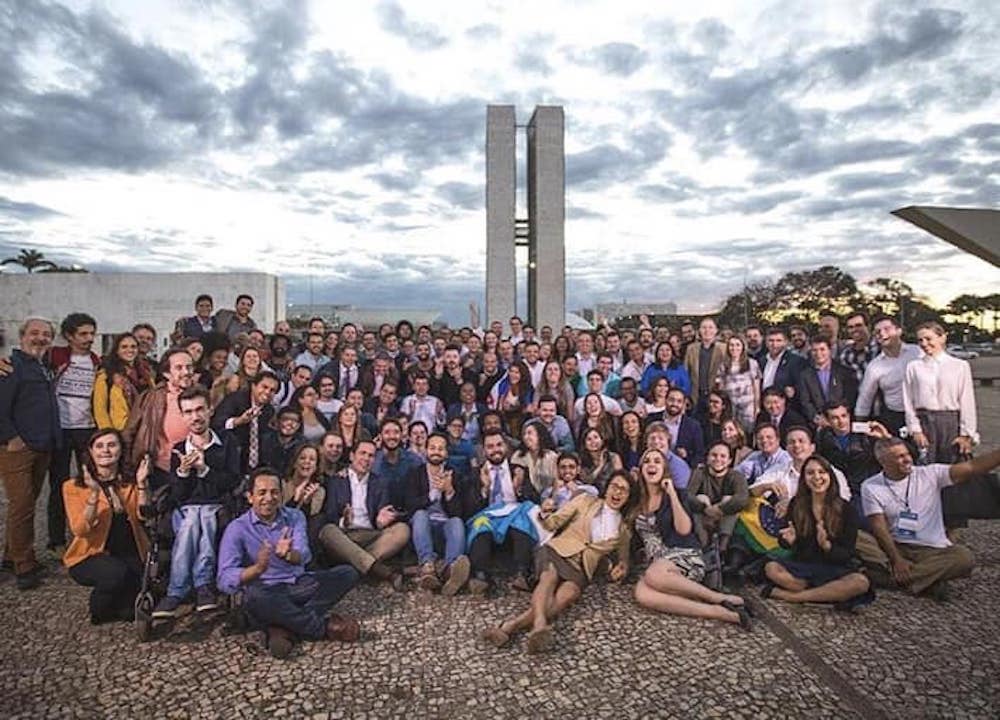SÃO PAULO, BRAZIL – The life-sized posters set up in front of São Paulo’s famous Modern Art Museum, MASP, made Silvia Farias cross the street.
“We are talking about democracy in our school now, so I just wanted to see what this was all about,” said the 17-year-old student.

Farias told The Rio Times she voted in October’s election, but was not certain she chose the right candidate. “There are so many issues and everyone knows politicians lie and promise everything just to get your vote. After they get elected, they forget about the promises and the people,” she said in a disappointed voice.
But events like the one on Sunday, September 15th, in São Paulo have been gaining strength throughout Brazil, with movements and organizations obtaining support from those seeking political renewal and an end to the so-called “old politics” of Brazil’s lawmakers and political leaders.
Among the movements gaining support are RenovaBR and Acredito.
With over 12.2k followers on Twitter and 5.30k on YouTube, RenovaBR dubs itself a “school” preparing a new generation of politicians and policymakers.
Businessman Eduardo Mufarej co-founded the group in 2017 as a supra-partisan movement that seeks to produce a “new wave of politicians”. According to Mufarej, the movement wants people who have ethical principles and will pass legislation focused on the public good.

In the 2018 general elections, eleven of RenovaBR’s “students” were elected to Congress and many more to state and municipal legislatures. RenovaBR students are affiliated to more than 30 parties, from President Jair Bolsonaro’s PSL party, to liberal party Novo, to left-wing parties such as PDT and even extreme-left political parties, such as the PSTU.
Among the more famous RenovaBR students are federal representatives Felipe Rigoni and Tabata Amaral. “We selected new leaders from all over the country. People from different parties, with different ideas, but who have in common the belief that politics is a place of honesty, dialogue and dedication,” says the movement’s manifesto.
The political leadership training school seems to be on the right track. From January to July of this year more than 31,000 people enrolled in its seminars.
While movements such as RenovaBR act to educate politicians, others work to mobilize political leaders.
“We are in favor of reform with limitations. But we don’t want to fall into this (political) polarization that just because you don’t like the government, you’re going to be against welfare reform,” says Zé Frederico, one of the founders of the “Acredito” movement in a video.
“It seems that you either have to be totally for everything the government is proposing, or radically against,” adds Frederico.
According to the Acredito organizer, his group believes that, more important than taking a side, is trying to resolve the problems.
“We believe in policies that combat privileges and break the monopoly of surnames; that put people at the center of decisions; policies that go beyond radical polarization, that promote dialogue and the search for effective solutions,” says the movement on its webpage.
According to Acredito executives, Brazil must overcome its inequalities, which create barriers to a more stable, fair and developed country project. “We believe that Brazil will only be fair when it offers dignity and equality of opportunity to all Brazilians,” concludes the group.
In regards to the political stance of the group, Acredito, with more than 14.6k followers on Twitter, says being left or right-wing is too “simplistic”.
“We advocate policies that we believe are universal. We believe in effective education, health, social assistance, food security, and basic sanitation policies, adapted to different realities, that attack the structural roots of the inequality that afflicts us,” says the group’s philosophy.

“We also believe in the possibility of economic development combined with social development, always in harmony with the environment and with respect for indigenous peoples and traditional communities.”
The movement, which numbers federal deputy Tabata Amaral (PDT) among its leaders, has the goal of renewing ten percent of Congress in 10 years and is working to increase its representatives in the municipal executive and legislative elections of 2020.
Political renewal and “breaking with old politics” is easier to bring about in city councils than in the National Congress, say analysts.
“In municipalities, [political] parties have little relevance, [and] do not count for much. The problem is, when this nonpartisan renewal arrives in Congress, it does not succeed, because representatives vote with their party,” Carlos Ranulfo, political scientist and professor at the Federal University of Minas Gerais (UFMG) told a local newspaper earlier this month.
Nonetheless, Ranulfo says there are signs that this new wave of younger politicians may be gaining strength, with the help of these new groups.
Decisions made by newly-elected politicians, like debutant Tabata Amaral, who chose not to follow their parties’ voting position on key legislative measures, such as Social Security reform, has cast these movements into the limelight.
Amaral is a member of the Acredito movement and a former RenovaBR ‘student’.
The organizer of Sunday’s event, Pact for Democracy, is also a sign of changing times. The entity was created in 2018, and today is supported by at least 87 entities, which defend basic values of tolerance and coexistence, and are increasingly concerned with the polarization of today’s politics.
“The more radicalized the official discourse becomes, the more people realize the importance of dialogue and affirming the principles of coexistence,” says Ricardo Borges Martins, one of the key leaders of the Pact.
“I think it’s time to get back on the street, (but) not just to protest. (We want) to change minds, making people see that there are certain things going on in Brazil that are not normal and are by no means acceptable,” says Martins.

